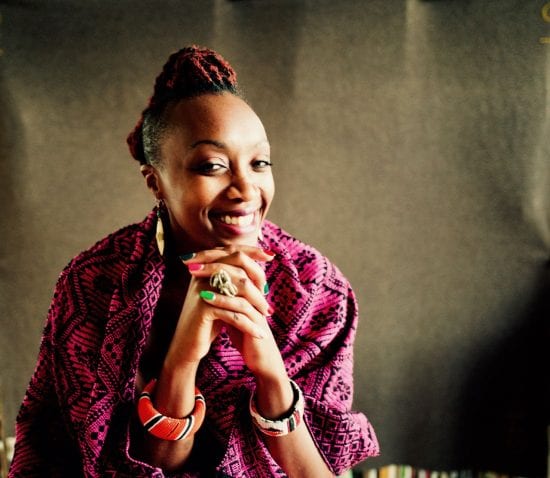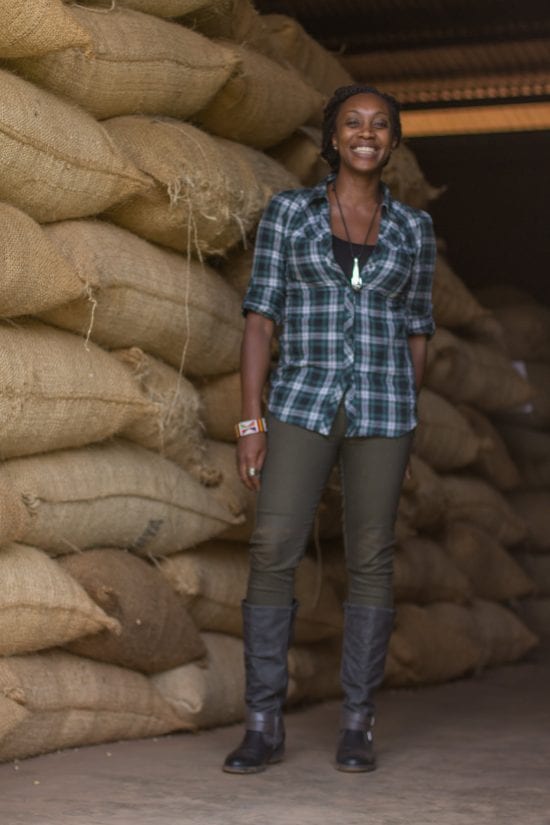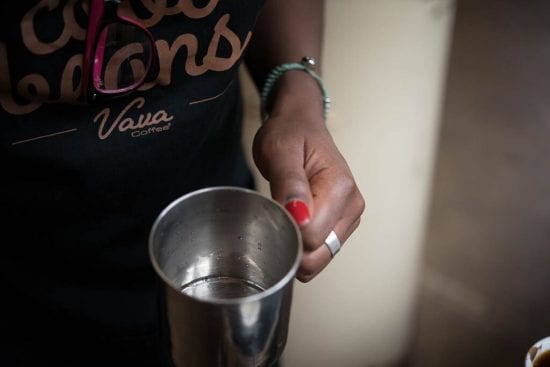
We continue our interview with Vava Angwenyi of Vava Specialty Coffees and Gente Del Futuro. Today, she talks about decolonizing empowerment, how to meaningfully change the lives of farmers, and how it feels to deliver hard truths about the coffee industry.
BY ASHLEY RODRIGUEZ
BARISTA MAGAZINE ONLINE
Cover photo courtesy of Vava Angwenyi
If you missed part one of our interview with Vava Angwenyi of Vava Specialty Coffees and Gente Del Futuro, click here. In part two, Vava unpacks the term “decolonizing empowerment,” relays some hard truths about the coffee industry, and provides meaningful pathways to actually change the lives of coffee farmers around the world.
AR: Can you talk more about the idea of decolonizing empowerment? You mentioned it above and it was also a central idea in the talk you gave at Re:co this year.
VA: When I started talking about decolonizing empowerment, it’s one of the biggest reasons Africa is the way it is. We’ve let NGOs come in or people who want to buy our products, and then they make us dependent or we feel that they are our saviors and it’s modern-day colonization. We have to break away from it as owners of our own resources. This also happens in Latin America, but they didn’t experience colonialism in the same way Africa did.
So when I was talking about it, it’s because I’ve seen it. I’ve done work with certification programs, and I shudder when I realize that many of these organizations are just putting a noose around farmers’ necks. [They say,] “We want you to rely on us and depend on us for as long as you’re growing this crop,” and that’s not the way it should be.

Empowerment is like raising a child. You want to raise them to be independent, to make their own decisions, and you want them to eventually leave the house. As a parent, you will not keep knocking on your kid’s door after they leave to see what they’re doing or what they’re having for dinner. You have to give them the tools to be fully independent and just watch from a distance. Watch them either succeed and flourish—or fail—and maybe that’s when you come to the rescue, or maybe you’ll let them reach out.
When I made that comment, it comes from the fact that a lot of organizations that go into producing countries lack the cultural understanding to operate in the country. A producer hears that you’re giving them money or bringing in money as a resource, then of course they’re listening, but they realize that they’ve shot themselves in the foot. But many organizations come in and don’t provide farmers resources to actually sell or do anything with the products they make because many organizations want to be involved solely to claim that they were there first. That they were the first to help these people—everyone wants to look like the savior.
AR: What steps can we start to take to decolonize empowerment?
VA: It starts with acknowledging people like us—people from origin. There are a lot of people already out there, in Latin America and Africa, doing remarkable things at origin. There’s a few local entrepreneurs from the continent I know who have been working with producers but are overlooked because they are not white. When you’re at origin, your story is better when you’re a white person working with Africans or Latinos. But when you’re an African …

The culture that you grow up with in Africa is that certain things are for white people, and certain things are for us, and that’s not the truth. The process of decolonizing empowerment in this regard involves empowering youth to take on careers in the coffee sector, in any capacity, and to work within their community to create positive change from within, instead of waiting for foreigners to come in and save us. That allows us to speak up and say, “Hey, this is the way that we do things and this is what empowerment looks like for us.” Oftentimes organizations come in and dictate the way things have to be, without understanding that there’s a delicate balance between culture and business, so it’s important to always work with people at origin, be they farmers or not, who are experts in the culture.
We at origin—those who have been empowered at origin—can speak up for ourselves and speak up for others and say, “Hey, as an industry we’re really messing up,” and not every white person who comes to origin is doing a good job. I’m all for collaboration, but we shouldn’t take all the Western suggestions on what development looks like. People like to tick a box, like, “OK, we trained 50 women in gender equity and their husbands attended,” and to bill that as development gives the community a false set of expectations—it’s colonialism all over again.
To decolonize it, one: We have to speak up at origin; own our stories; brand ourselves; and never let anyone control our narrative. And two: We have to give tangible, practical success stories that come from farmers and communities.
AR: Where are some of the places we fail in coffee?
VA: I’m all about educating producers on their rights, and that’s a place we fail at origin. Nobody is focusing on educating farmers on their rights, on market access, pricing, ownership, and a vast number of other areas we tackle on the ground. We hear about barista camps, but what about producer camps? Bringing farmers up to speed on new technologies, agronomy, bringing together producers to talk and share ideas.

For example, there’s a group of producers in Rift Valley who heard about the potential of women-grown coffee, so they gave some of the women—wives, daughters—in their community coffee bushes, processed it and sold it separately, and this all happened because someone went to a few conferences, someone did some research, and they were hungry for more information. Now the women’s coffee fetches higher prices both for quality and differentiation than the men’s coffee. Knowledge is key.
The moment we start demystifying knowledge and giving more information to producers—and of course there are some people who don’t want producers to have knowledge because that’s how slavery exists and that’s how importers can get certain prices from farmers—then we start decolonizing this process. They start to dictate the terms and become players in the goods they produce.
AR: You say a lot of hard truths that I imagine not everyone wants to hear.
VA: People don’t like to be called out—but the idea was never for me to take over. One day I’d like to transform the way coffee in Kenya is produced, and I believe this is going to happen one day. There’s not just a knowledge gap for producers, but for roasters too—they’re also hungry for information and are working on a small scale trying to do good. Many roasters never get to hear the truth about what coffee looks like in a particular region; importers come, they cup coffees in a warehouse, take a few photos, maybe do something like buy them lunch or something else that’s not sustainable, and say that the coffee landscape in Kenya is complicated. The reason we continue to talk about producer profitability at every conference is because it’s a close-knit society of people who don’t want things to change. It’s colonialism all over again.
Every time I talk about producer camps and the idea that I want to educate producers, everyone is like, “Uhh … how do we do that?” And it’s simple: Take the model that the barista community has, and use that to educate producers. I’ve seen what knowledge has done for producers. When you take producers and show them like how the C-market works or how valuable their coffee is, or explain to them the coffee math, like what the deductions are from the milling point, they realize that they have alternatives. They realize they’ve been shafted, but that they have the power to get out of that. But that’s not what the industry wants. They will always want producers of lesser power so they can dictate the terms. So in essence if one is seeking to disrupt a market like this, you are bound to step on a few toes here and there.
AR: What else needs to change?
VA: You know what? The C-market shouldn’t exist—it currently exists to only benefit consuming countries. Also, the way to take away power from traders is to have consumption at origin, and branding and roasting coffee at origin. Another way is to educate farmers on the value of what they’re producing. If coffee farmers can afford to buy coffee, they will.
We have to de-commoditize coffee. When I meet with a farmer, I don’t look at auction prices. First, I do my calculations—how much did the farmer spend producing the coffee?—and we also look at certifications and pay a premium based on quality. But many of the importers in the United States and Europe can’t afford to pay these prices despite all the ethical marketing campaigns they parade.
I don’t think many people are focused on finding a solution. I think, to help them sleep at night, many organizations engage in the development projects like we talked about before. They’ll go train 50 Q-graders in Colombia, for example, and they’ll think they’re doing well. Some people are serious about finding a solution, but I find the most serious people I’ve talked to are roasters. They want someone who can assure them that farmers are actually getting the money that they pay for coffee and are searching for new ways to buy coffee.
AR: How does your company’s model work to find a solution?
VA: In the past year we have been focused on landing and importing coffees ourselves in consuming countries. We want our coffees to be easily accessible and available. Most people are looking for a coffee with a story. If you are interested in traceability, responsible sourcing, and that chain of custody of money, then that is what we provide. Essentially, we are looking for ways to work directly with roasters and importers that care and value sustainability and ethics. I am in business to make a profit, but I am in this business primarily to make sure farmers get money in their hands.

